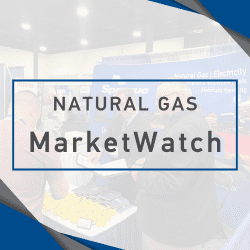Recap: Oil prices remained under pressure on Tuesday. While the recent production cuts from OPEC+ provided significant support to oil markets, traders remain worried that the slowdown of the world economy will lead to lower demand for oil. Recession talk moved to the forefront on Monday after World Bank President David Malpass and International Monetary Fund Managing Director Kristalina Georgieva warned of a growing risk of global recession and said inflation remains a continuing problem. From a big picture point of view, the current pullback after a strong rally looks healthy, but it is clear that oil prices need additional positive catalysts to move closer to recent highs. WTI for November delivery lost $1.78 per barrel, or 1.95% to $89.35, while December Brent fell $1.90, or 1.98% to $94.29 a barrel. RBOB for November delivery gained 0.45 cent per gallon, or 0.17% to $2.6273 and ULSD for November delivery gained 1.61 cents per gallon, or 0.41% to $3.9308.
Market Analysis: November WTI pulled back toward its 50-day moving average in what appeared to be signs of exhaustion. Given the push and pull from a perceived tightness in supply and spreading concern over a global economic slowdown, we expect to see quite a bit of volatility, as traders try to determine the direction of this market. We would keep an eye on the 10 and 50-day moving averages, as the shorter term average is climbing higher, while the longer term average is pointing lower. A cross of the shorter term above the longer term should bring about a spate of buying. Up above, the 200-day moving average remains an area of resistance, above this level, additional resistance can be found at $95
Fundamental News: U.S. Deputy Energy Secretary, David Turk, said the U.S. can tap emergency oil reserve in coming weeks and months as needed to fight high oil prices.
White House national security spokesman, John Kirby, said President Joe Biden is re-evaluating the U.S. relationship with Saudi Arabia after OPEC+ announced last week it would cut oil production. He said Biden is willing to work with Congress on the future of Saudi relations, after Democratic Senator Bob Menendez called for a freeze on cooperation with Saudi Arabia, including most arms sales.
State media reported that the Saudi cabinet emphasized "the pivotal role" of OPEC+ in achieving balance and stability in global oil markets.
JPMorgan CEO, Jamie Dimon, said the U.S. should produce more oil amid the world's energy crisis. He also predicted a recession for the US in the next six to nine months.
Diesel refining margins in both Europe and the United States reached all-time highs as strikes at French refineries exacerbate a global shortage of distillate fuels. The price of diesel, heating oil and other refined products was already elevated after Russia's invasion of Ukraine and with overall capacity to produce fuel reduced by the closure of numerous refiners in the last two years. Benchmark European diesel refining margins and U.S. distillate margins hit a record high of around $77/barrel on Monday, although they eased to around $68 on Tuesday.
Clashes between protesters and security forces continued across Iran on Tuesday. Protests calling for the fall of the clerical establishment have swept Iran since Mahsa Amini, a 22-year-old Iranian Kurdish woman, died on September 16th while being held by police for "inappropriate attire". Unrest continued late on Monday and overnight after demonstrations spread into the country's energy sector. Energy installations in southwestern Iran were hit by strikes for a second day on Tuesday, with workers protesting at the Abadan oil refinery, Kangan and the Bushehr petrochemical plant.
Early Market Call – as of 8:20 AM EDT
WTI – November $89.78 Up 0.43
RBOB – November $2.6618 Up 0.0382
HO – November $4.0278 Up 0.0978
View the Sprague Refined Products Market Watch Report in a downloadable pdf format by clicking below.
Click to view more online:
Heating Oil Supplier
Diesel Supplier
View market updates
View our refined products glossary
Go to SpraguePORT online










